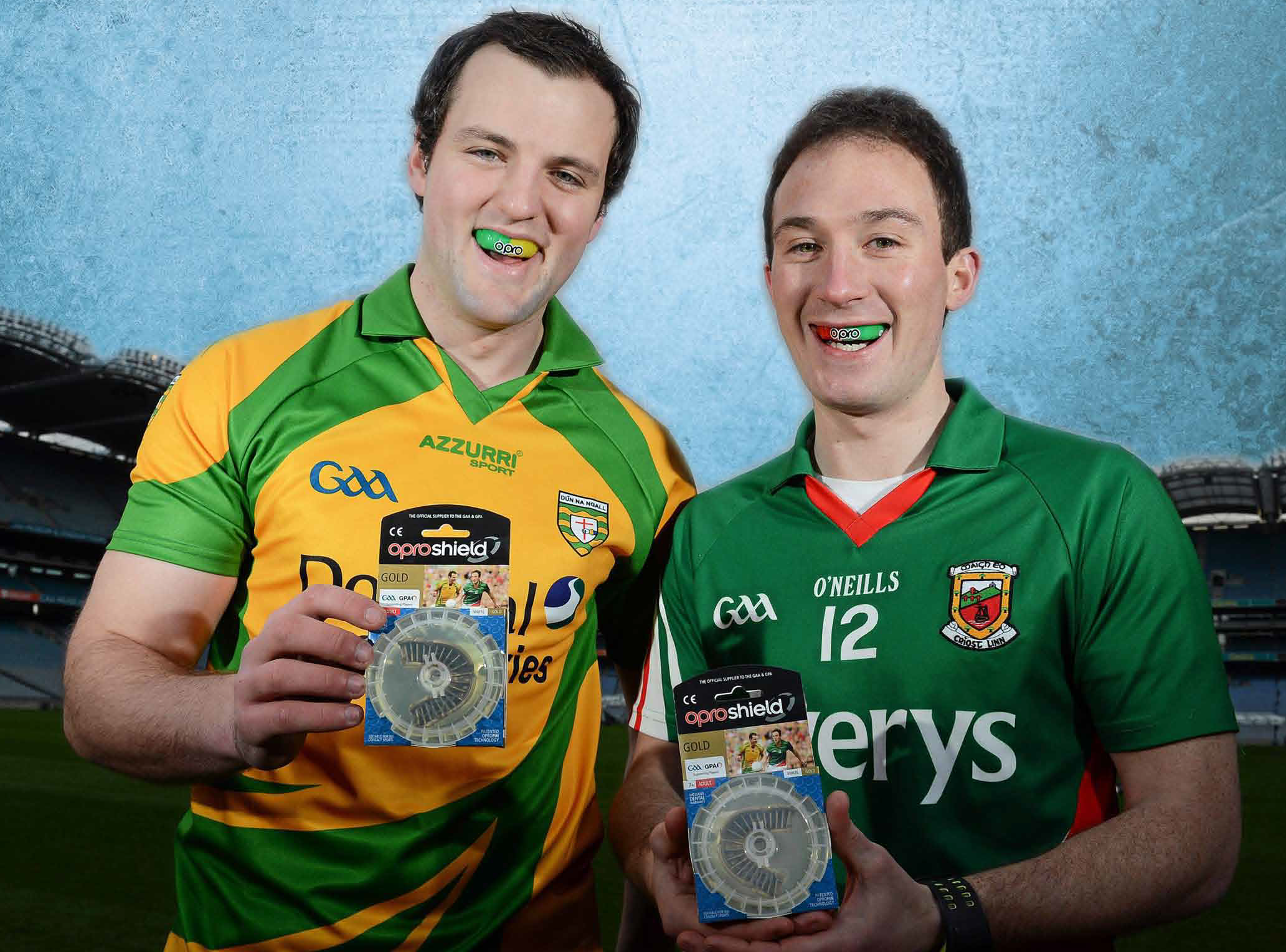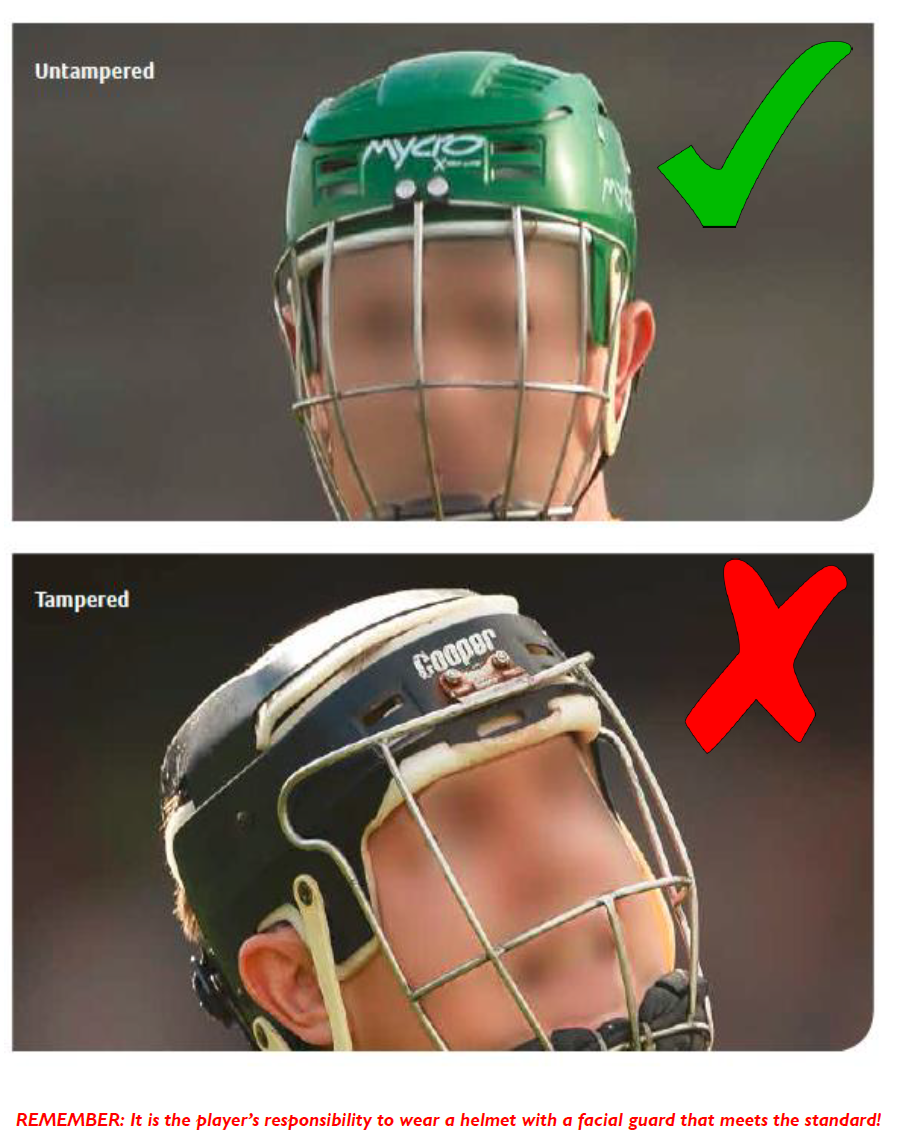Mouthguards & Hurling Helmets - Rules & Guidance
Mouthguards
Since January 1st 2014, it has been mandatory for players in all grades to wear a mouthguard in all Gaelic football games and practice sessions.
The introduction of this rule has led to a drop of 37% in the number of dental injury claims made via the GAA Injury benefit fund, resulting from incidents in Gaelic football training sessions and matches in grades up to Minor in 2013. At adult level a similar drop of 39% occurred in 2014 proving the benefits of wearing a mouthguard in reducing the risk of dental injuries.

Key Points
- All Gaelic footballers must wear a mouthguard in practice sessions and matches.
- It is the responsibility of each individual player to use a mouthguard
- A properly fitted mouthguard is the best available protective device for reducing the incidence and severity of sports-related dental injuries
- Players can be sent-off in a game for not wearing a mouthguard
- Players will not be covered under the GAA player injury scheme if they don’t comply with the mouthguard rule
- No Mouthguard? No Game!
Mouthguard Exemption
Hurling Helmets
The GAA would like to remind all players at all levels in all Hurling Games and Hurling Practice Sessions it is mandatory for, and the responsibility of, each individual player to wear a helmet with a facial guard that meets the standards set out in IS:355 or other replacement standard as determined by the National Safety Authority of Ireland (NSAI).
All players are advised that in the event of a head injury occurring, if the helmet being worn does not meet the standard or is modified or altered from the original manufactured state, they are not covered under the terms of the GAA Player Injury Fund.
The following helmet manufacturers currently provide products which meet the standards set out in IS:355 or other replacement standard as determined by the National Safety Authority of Ireland (NSAI).
- Mycro
- Azzurri
- O’Neills
- Atak Sports
Once the helmet or faceguard is modified in any way, the player is playing at an increased risk of injury and not covered under the terms of the GAA Player Injury Benefit Fund.
